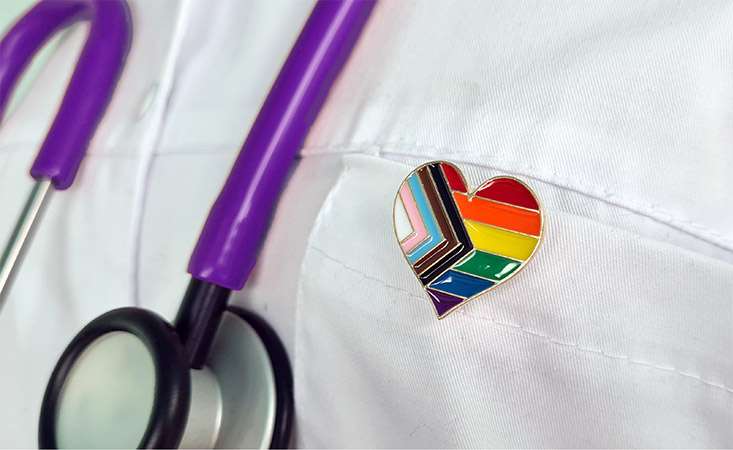
A recent study shed light on some of the challenges members of the LGBTQ+ community face by asking the patients themselves. In interviews with over 200 individuals, several themes emerged.
Healthcare providers’ LGBTQ-specific knowledge and skills – as well as the assumptions they made about sexual orientation and gender identity – ranked as the number one factor affecting patients’ experiences. Patients with cancer also reported that the perceived safety or lack of safety in the clinical setting changed how and when they accessed care. Having a support person present increased the quality of their care, but the presence of that loved one was highly dependent on feeling safe and accepted.
PanCAN acknowledges the legacy of systemic discrimination and abuse that may prevent LGBTQ+ people from seeking health care. For a disease as complex as pancreatic cancer, it’s important to have a trusted healthcare team at your side – with both the knowledge and the empathy to help guide discussions about health in a safe and affirming way.
“It is incredibly important for people with pancreatic cancer and their loved ones to know how to advocate for their needs,” said Nicolas Clifford, PanCAN’s manager of research and education communications. “This can be especially true for the LGBTQ+ community – many of whom have negative experiences with doctors and may avoid important medical care that can help catch pancreatic cancer early. So much of medical care relates to our identity, gender, the body, and being vulnerable. The ‘regular’ things we do at a doctor’s office, like using our preferred name, sharing our gender, getting a physical, talking about our body parts or sex, can be scary or traumatic for a LGBTQ+ person.”
Healthcare professionals play a vital role in creating safe and welcoming spaces, Nicolas said.
“It is equally – if not more – important for healthcare professionals to make a continuous effort to create a practice that emphasizes safety, kindness, understanding, and empathy for the unique experiences of every patient,” he said. We know that LGBTQ+ people face higher levels of anxiety when discussing their health, and small changes, even knowing terms people use to identify themselves or putting a small pride flag somewhere in a visible space can make a difference.”
Here are three ways PanCAN and others can help the LGBTQ+ community navigate the healthcare system.
- There are resources to help find healthcare professionals who are culturally competent and knowledgeable about the LGBTQ+ community. The National LGBT Cancer Network offers provider databases for LGBTQ+ friendly cancer treatment facilities and cancer screening providers. They also highlight facilities that have completed training for transgender issues. Other resources include the LGBTQ+ Healthcare Directory and the World Professional Association for Transgender Health provider search tool.
- Cancer support groups specifically for members of the LGBTQ+ community offer community and a safe space. Contact PanCAN Patient Services and a Case Manager can help to find in-person support groups in your area. The National LGBT Cancer Network offers a free bi-weekly support group on Zoom. They also maintain a list of Facebook groups, including for the transgender community, young adult cancer survivors and more.
- PanCAN Patient Services can give people with pancreatic cancer, caregivers and loved ones the resources they need to advocate for themselves at diagnosis, through treatment and into survivorhood. Similarly, PanCAN Patient Services Case Managers can connect healthcare professionals with information and educational materials on how to make sure their practice is friendly and a safe space for LGBTQ+ people.





